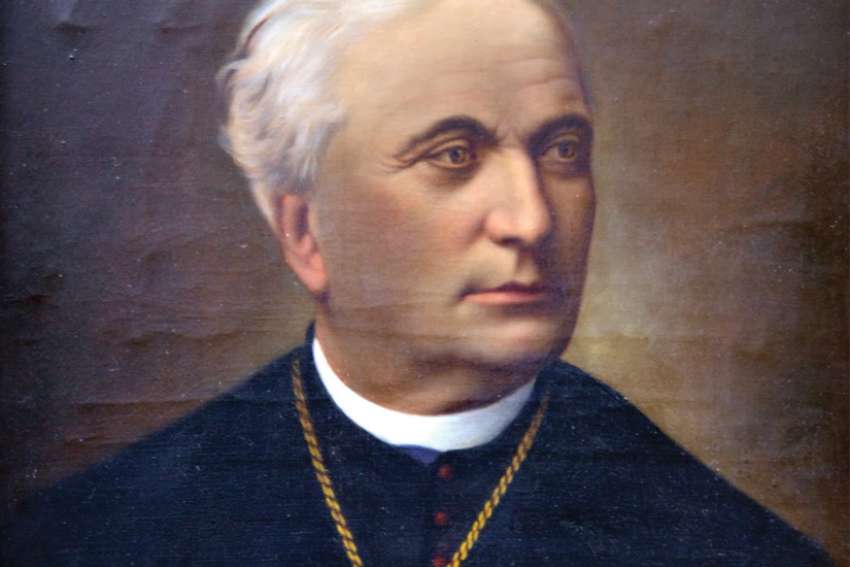“The time for dithering has long passed. The time for process has long passed,” Nenshi said May 31 in response to the discovery of the 215 Indigenous children found buried at a former residential school in Kamloops, B.C. “Both of those boards should change the names of those schools at their next meetings.”
The CBE consented to the public campaign for a name change within a day so the school formerly named after Hector-Louis Langevin, a Father of Confederation who is considered a paramount builder of the residential school system, was changed to Riverside School.
However, its Catholic counterpart has not committed definitively to changing the name of a school named after Bishop Vital-Justin Grandin (1829-1902), bishop of the Diocese of St. Albert from 1871-1902 (now the Archdiocese of Edmonton), credited as a key builder of the Catholic Church in Western Canada, but whose legacy includes support for residential schools.
The CSSD in a statement said it “takes all Indigenous matters seriously and are deeply saddened by the discovery in Kamloops.” And “as Catholics, we are deeply sorry for the residential school movement of the past.”
Concerning the calls to rename Bishop Grandin High School, the board said it “will be considering feedback from stakeholders such as parents, staff, students, Catholic bishops and elders in our Indigenous community.”
Similar calls are being made in Winnipeg as the late Catholic bishop is commemorated with a major roadway, Bishop Grandin Boulevard. Mayor Brian Bowman is on board as he composed a five-tweet thread, which began with the statement, “the time has come on Winnipeg’s journey of reconciliation to re-visit the street name, Bishop Grandin.” He said city council will confer with the city’s Welcoming Winnipeg Committee, a branch of the city’s Indigenous Relations Division, over the coming weeks.
On June 7, Edmonton city council voted to change the name of its Grandin LRT station.
Pressure is growing across Canada to cancel the architects of the residential school system. On June 6, a statue of Egerton Ryerson, namesake of Toronto’s Ryerson University, was toppled after being targeted by vandals in the days previous. Demand is growing that the institute be renamed. And Charlottetown removed a statue of Canada’s first prime minister, John A. Macdonald, shortly after the discovery for his support of residential schools.
Volume one of The Final Report of the Truth and Reconciliation Commission of Canada, which provides a historical account of Canada’s residential schools system from its 19th-century origins up until 1939, contains background information about Grandin’s motivations for championing residential schools. The report also cites correspondence between him and Langevin, and letters addressed to Macdonald.
According to the report, Grandin was “convinced that Aboriginal people faced extinction, and doubtful that adult hunters and trappers could be transformed successfully into farmers.”
The report states Grandin implored Langevin that for Indigenous children “to become civilized they should be taken with the consent of their parents and made to lead a life different from their parents and cause them to forget the customs, habits and language of their ancestors.”
While largely commenting about Macdonald in remarks on June 1, Alberta Premier Jason Kenney spoke broadly about not rushing to erase the past.
“So, if we go full force into cancel culture, then we’re cancelling most, if not all, of our history,” Kenney said. “Instead, I think we should learn from our history. We should learn from our achievements, but also our failures.”
The Catholic Register sought an interview with Edmonton Archbishop Richard Smith about Grandin — the archdiocese’s online news site, Grandin Media, is named after Grandin — and was instead offered a statement. It said the archdiocese “acknowledge(s) that (Grandin) represents a controversial and mixed legacy.”
“The archdiocese is ready to engage and work directly with First Nations, school districts, Franco-Albertan communities, the City of Edmonton, the provincial government and all stakeholders in an ongoing and meaningful conversation about the next steps,” the statement read. “We are committed and working towards finding a solution that is respectful to all parties involved.”
The statement continues, the “people of the Archdiocese of Edmonton share the deep pain felt by Indigenous Peoples, and indeed all Canadians, arising from the disclosure” and that “the painful legacy of residential schools, many of which were originally under Catholic administration, reverberates to this day.”


